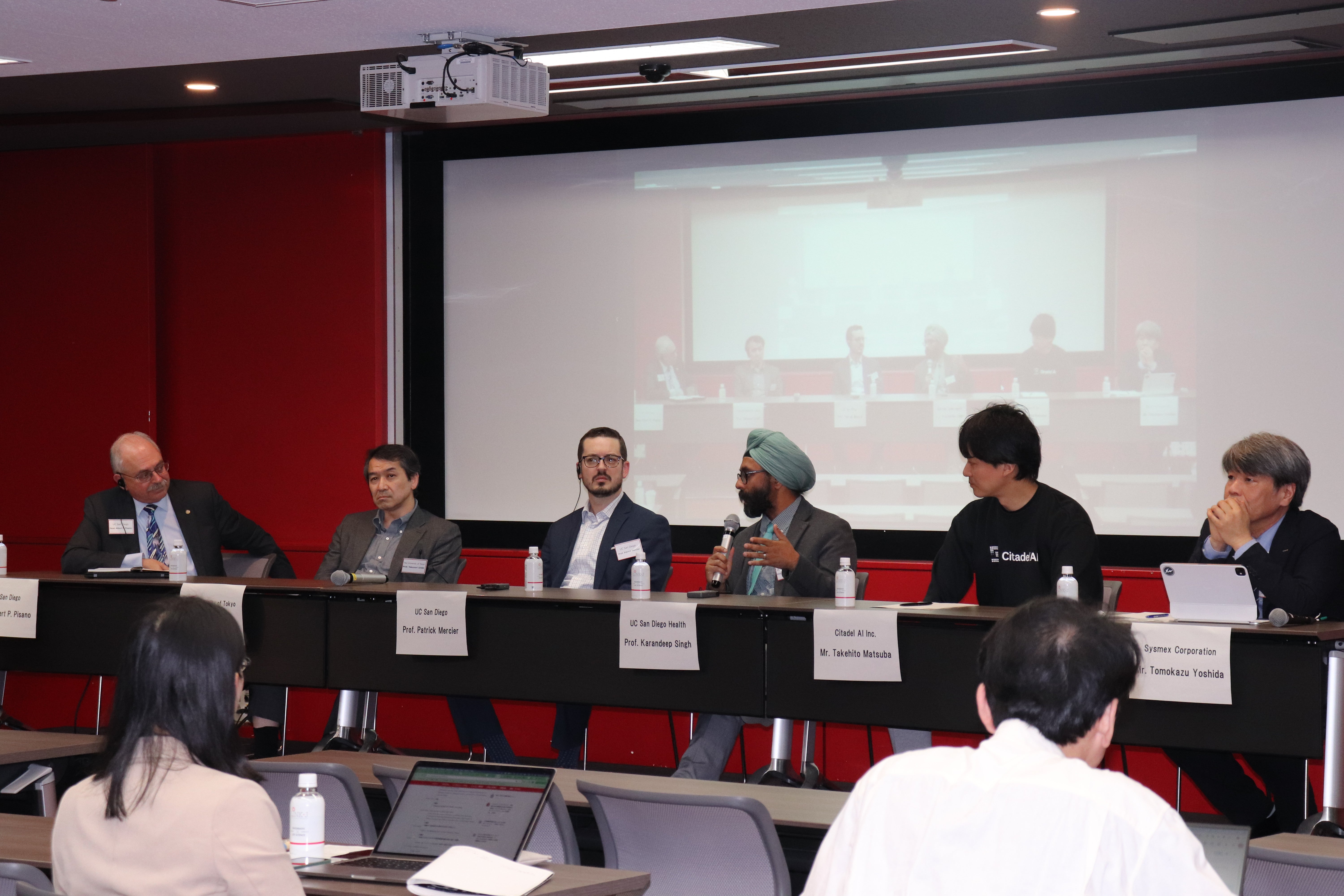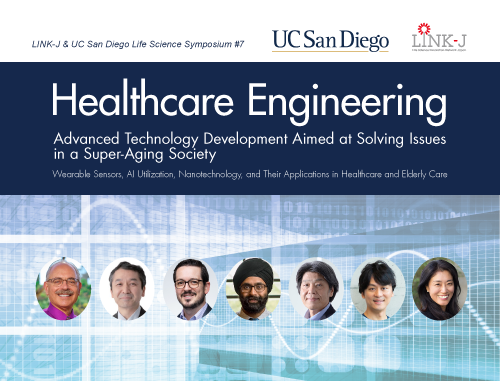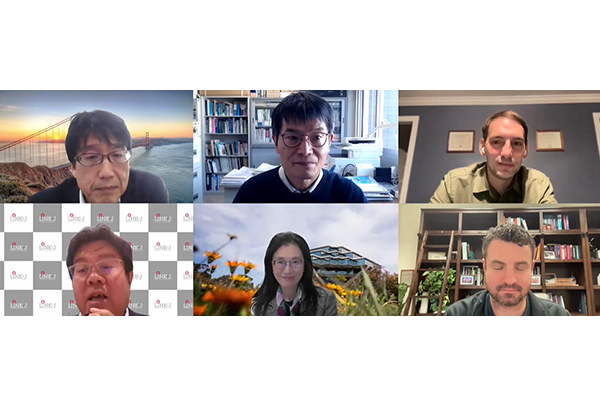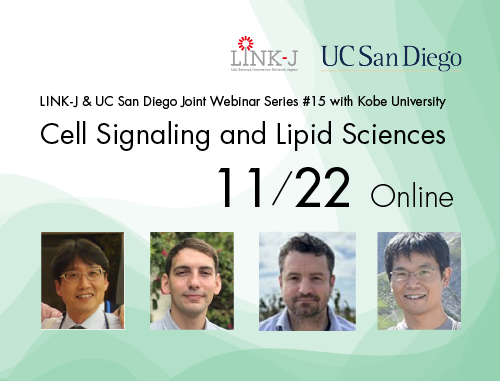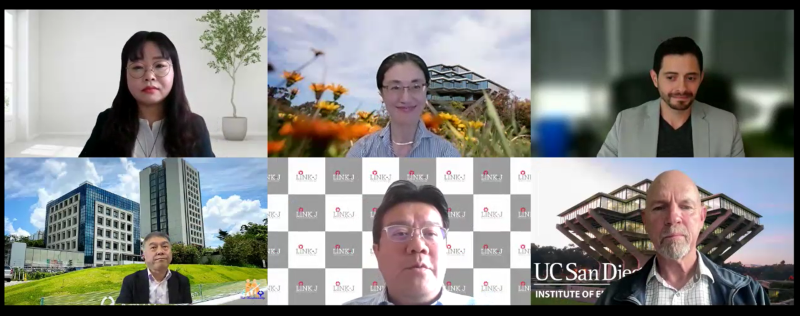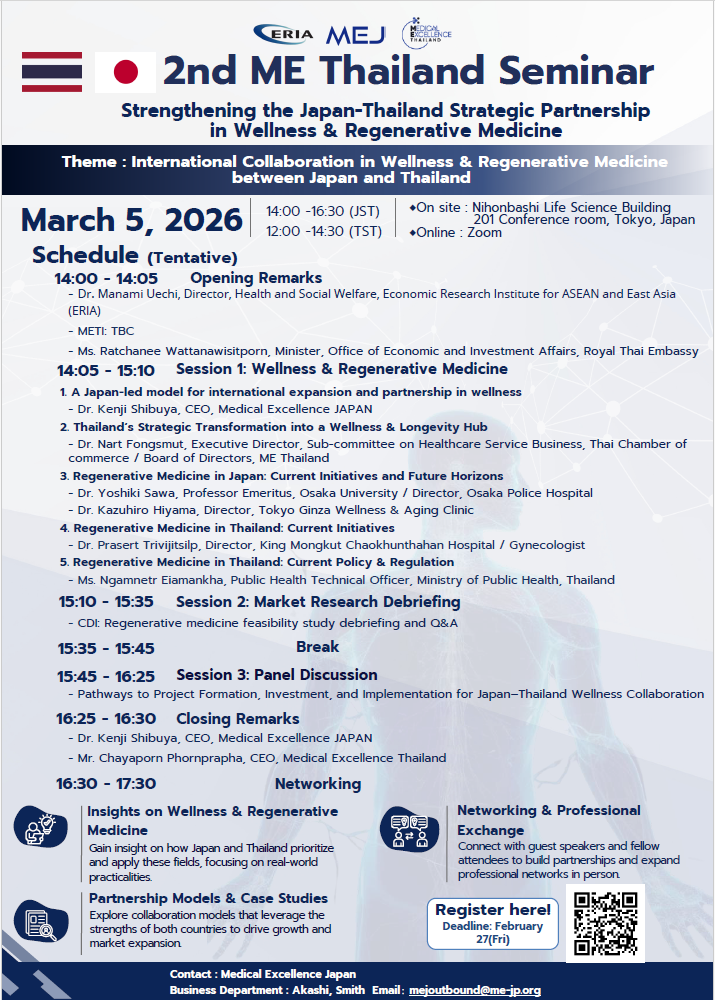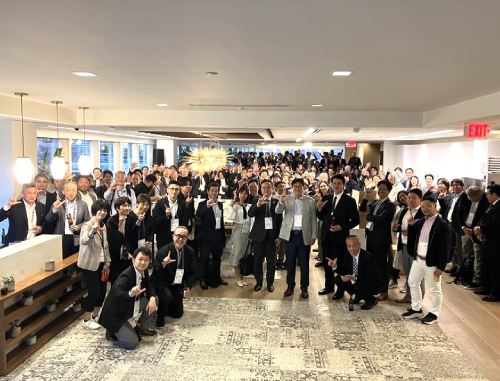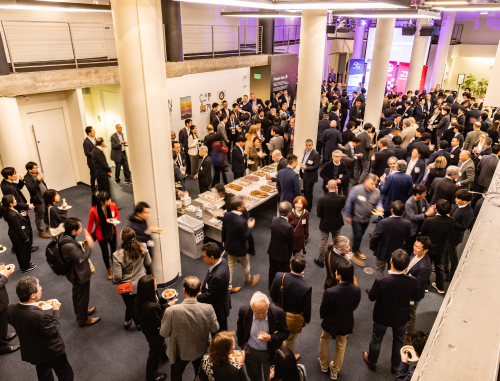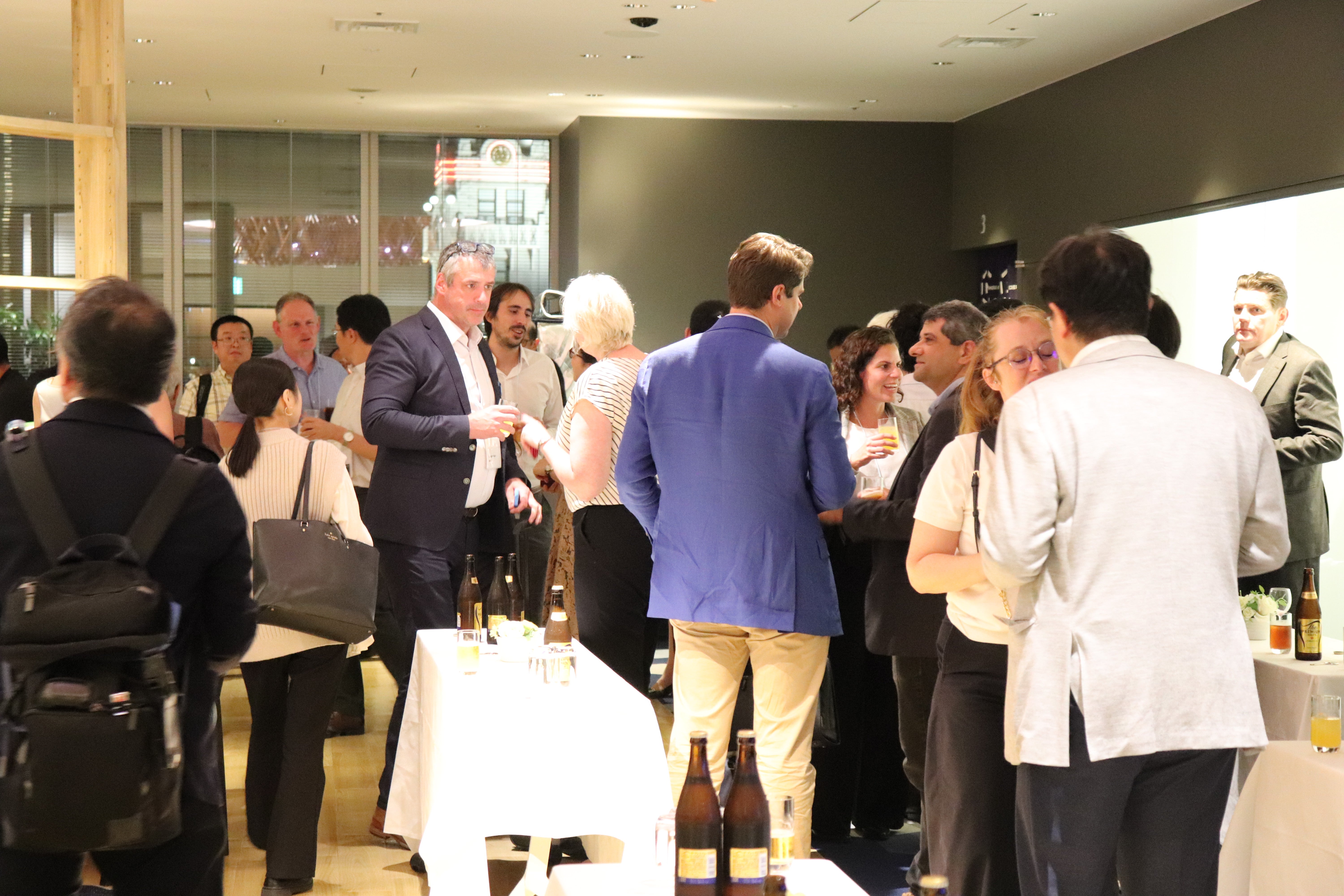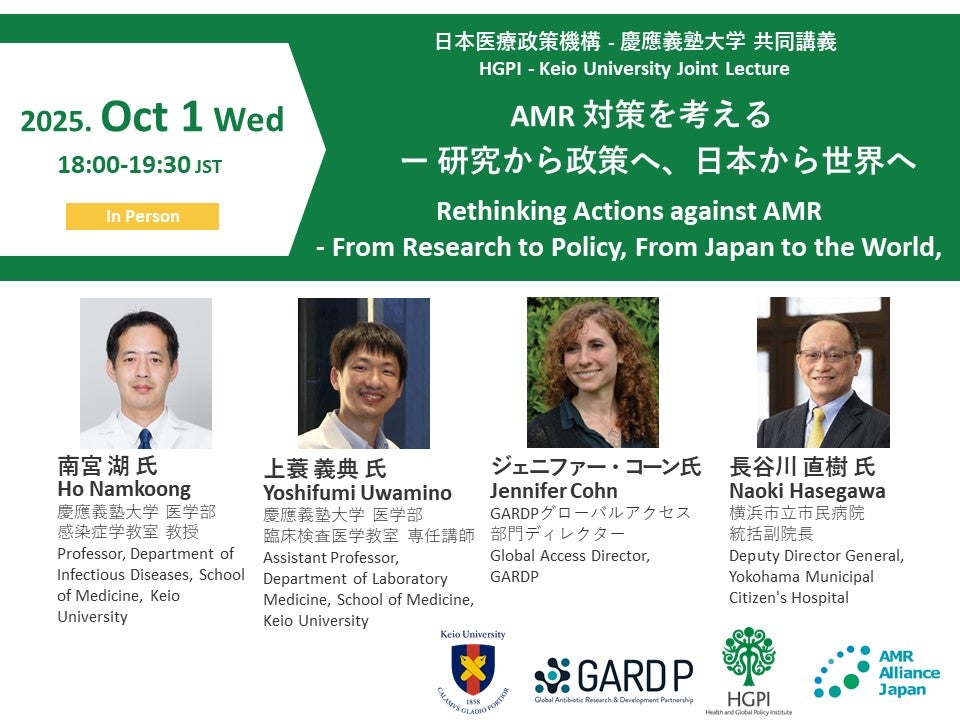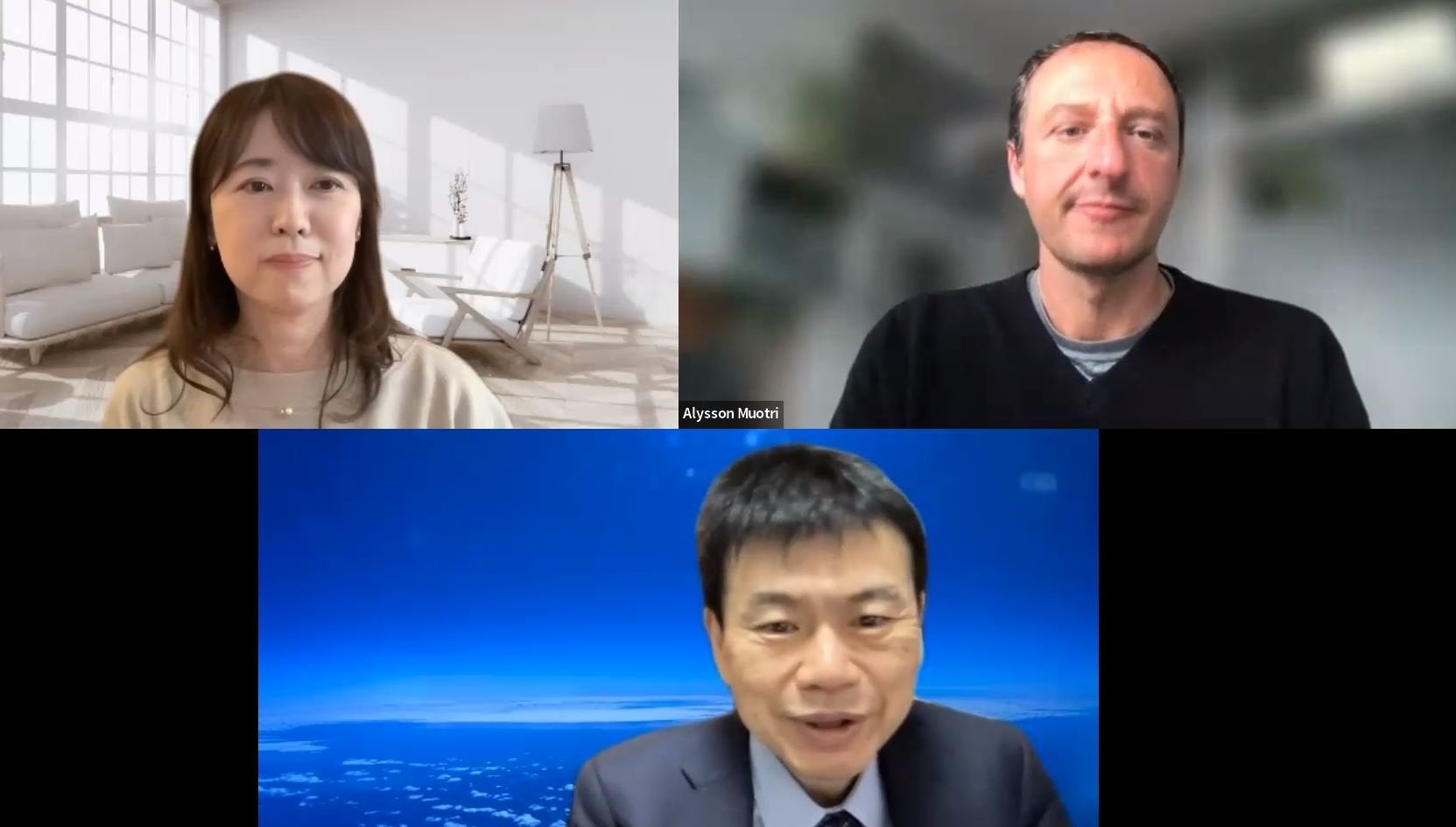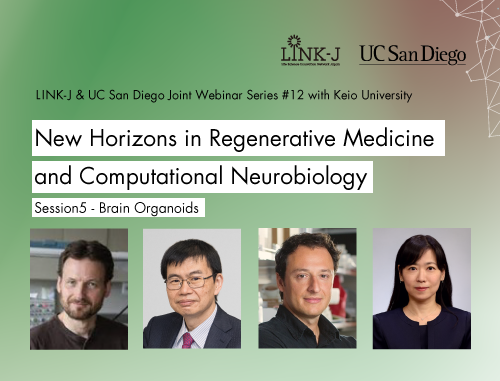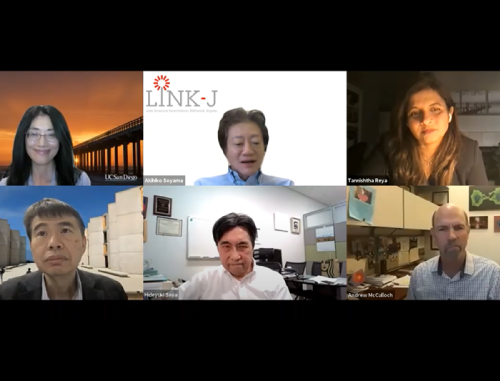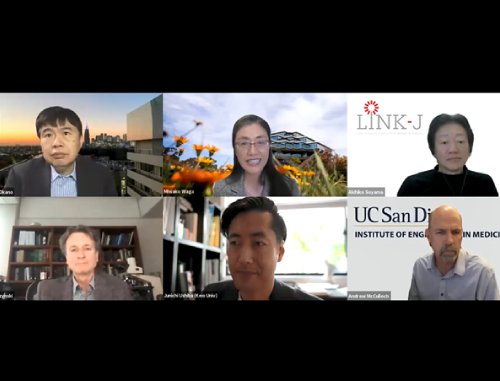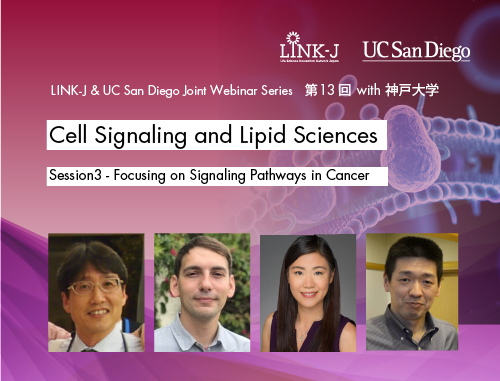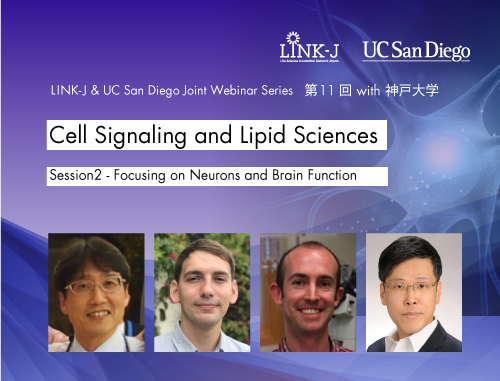For the eighth in the LINK-J &UC San Diego Joint Webinar Series, Professor Tannishtha Reya from UC San Diego and Professor Hideyuki Saya from Keio University will discuss new developments in stem cells and cancer. Professors Andrew McCulloch and Hideyuki Okano from both institutions will moderate a discussion.
*Language: English (English-Japanese simultaneous interpretation is available)
*English caption is available (you can choose to turn them on or off).
*Please note that LINK-J and UC San Diego are not responsible for any errors or omissions in the captions.
How to use captions: Managing and viewing closed captioning
To read about past UC San Diego-related events and reports, please click here.
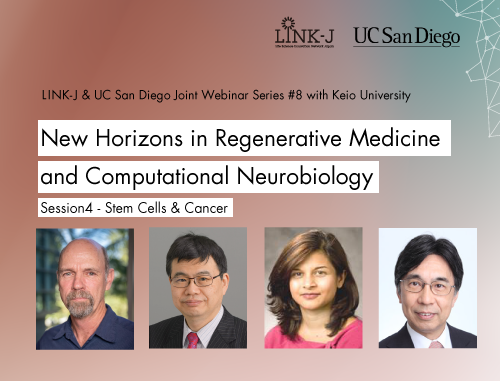
Date: Wed, Oct 6, 2021 9:00am-10:15am [JST] /Oct 5 [PDT]
Online (Zoom Webinar)
(Opens an external site)
Registration Fee
Free
Click ”Registration” to open an external site, and click “GET TICKET” on the right bar to sign up for the webinar.
How to participate
This event will be broadcasted on Zoom webinar. Please make a registration through Peatix.
You can join the webinar from "Watch" in the Peatix page on the webinar day.
Program
| Japan time | Pacific time | Agenda |
| 9:00-9:05 | 5:00-5:05 | Welcome - Akihiko Soyama, LINK-J and Miwako Waga, UC San Diego Remarks - Dr. Hideyuki Okano, MD, PhD, Professor and Chairman, Department of Physiology, Keio University School of Medicine Remarks and Speaker Introduction - Dr. Andrew McCulloch, PhD, Distinguished Professor of Bioengineering and Medicine; Director, Institute of Engineering in Medicine, UC San Diego |
| 9:05-9:35 | 5:05-5:35 | Presentation – "Stem Cell Signals in the Origin, Progression and Therapy Resistance of Cancers" Dr. Tannishtha Reya, PhD, Professor, Department of Pharmacology; Director, Division of Cancer Biology; University of California San Diego, School of Medicine |
| 9:35-10:00 | 5:35-6:00 | Presentation – "Novel strategies targeting cancer stem cells" Dr. Hideyuki Saya, MD, PhD, Professor, Division of Gene Regulation, Institute for Advanced Medical Research, Graduate School of Medicine, Keio University |
| 10:00-10:14 | 6:00-6:14 | Q&A and Discussion - moderated by Drs. Okano & McCulloch |
| 10:14-10:15 | 6:14-6:15 | Closing Remarks - A. Soyama |
Abstract
Dr. Reya's talk
Our research focuses on the signals that control stem cell self-renewal and how these signals are hijacked in cancer. Using a series of genetic models, we have studied how classic developmental signaling pathways such as Wnt, Hedgehog and Notch play key roles in hematopoietic stem cell growth and regeneration and are dysregulated during leukemia development. In addition, using real-time imaging strategies we have found that hematopoietic stem cells have the capacity to undergo both symmetric and asymmetric division, and that shifts in the balance between these modes of division are subverted by oncogenes. Further, regulators of this process, including the cell fate determinant Musashi, are critical players in driving progression of solid and liquid cancers and could serve as targets for diagnostics and therapy. Ongoing work is focused on understanding the mechanisms that drive therapy resistance after drug delivery, as well as developing high resolution in vivo imaging approaches to map normal stem cell behavior and interactions within living animals, and to define how these change during cancer formation.
Dr. Saya's talk
The major cellular antioxidant glutathione (GSH) protects cancer stem cells from oxidative damage that can lead to the induction of ferroptosis, an iron-dependent form of cell death triggered by the aberrant accumulation of lipid peroxides. Inhibitors of the cystine-glutamate antiporter subunit xCT, which mediates the uptake of extracellular cystine and thereby promotes GSH synthesis, are thus potential anticancer agents. On the other hand, the efficacy of xCT-targeted therapy has been found to be diminished by metabolic reprogramming that affects redox status in cancer stem cells. The identification of drugs for combination with xCT inhibitors that can overcome resistance to xCT-targeted therapy might thus provide the basis for effective cancer treatment.
Based on this premise, we performed a synthetic lethality drug screen and identified the vasodilator oxyfedrine (OXY) as a sensitizer of cancer cells to GSH-depleting agents including the xCT inhibitor sulfasalazine (SSZ). OXY contains a structural motif required for covalent inhibition of aldehyde dehydrogenase enzymes, and combined treatment with OXY and SSZ was found to induce accumulation of the cytotoxic aldehyde 4-hydroxynonenal and cell death in SSZ-resistant cancer cells. Furthermore, OXY-mediated ALDH inhibition was found to sensitize cancer cells to GSH depletion induced by radiation therapy in vitro. Our findings thus establish a rationale for repurposing of OXY as a sensitizing drug for cancer treatment with agents that induce GSH depletion. Recently, interferon-γ released from CD8+ T cells was shown to suppress xCT expression. Therefore, OXY may be used as a potential sensitizer of the immune checkpoint inhibitors.
Biography
 Dr. Andrew McCulloch, PhD, Distinguished Professor of Bioengineering and Medicine; Director, Institute of Engineering in Medicine, UC San Diego
Dr. Andrew McCulloch, PhD, Distinguished Professor of Bioengineering and Medicine; Director, Institute of Engineering in Medicine, UC San Diego
Dr. Andrew McCulloch is Distinguished Professor of Bioengineering and Medicine at the University of California San Diego and Director of the Institute for Engineering in Medicine. He earned his bachelor (1981) and Ph.D. (1986) degrees in Engineering Science at the University of Auckland and joined the UC San Diego faculty in 1987. He directs the UCSD Interfaces Graduate Training Program and the Interdisciplinary Ph.D. Specialization in Multi-Scale Biology. Dr. McCulloch served as Vice Chair of the Bioengineering Department from 2002 to 2005 and Chair from 2005 to 2008. He is also a member of Qualcomm Institute, the Center for Research on Biological Systems, and a Senior Fellow of the San Diego Supercomputer Center.
 Dr. Hideyuki Okano, MD, PhD, Professor and Chairman, Department of Physiology, Keio University School of Medicine
Dr. Hideyuki Okano, MD, PhD, Professor and Chairman, Department of Physiology, Keio University School of Medicine
[Education]
1988: Ph.D. (Dr. of Medical Science), Keio University
1983: M.D. Keio University School of Medicine
[Employment]
2017~2021: Dean, Keio University Graduate School of Medicine.
2015~2017: Dean, Keio University School of Medicine.
2017~Present: Visiting Professor, Peking University, China.
2009~Present: Visiting Professor, University of New South Wales, Australia.
2008~Present: Honorary Professor, the Queenland Brain Institute, Australia.
2007~ 2015: Dean, Keio University Graduate School of Medicine.
2001~Present: Professor, Department of Physiology, Keio University School of Medicine.
1997-2001: Professor, Department of Neuroscience, Osaka University Graduate School of Medicine
1994-1997: Professor, Department of Molecular Neurobiology, Institute of Basic Medical Sciences, University of Tsukuba.
1992-1994: Instructor, Department of Molecular Neurobiology, Institute of Medical Science, University of Tokyo.
1989-1993: Postdoctoral Research Fellow, Department of Biological Chemistry, The Johns Hopkins University School of Medicine.
1985-1989: Instructor, Institute for Protein Research, Osaka University.
1983-1985: Instructor, Department of Physiology, Keio University School of Medicine.
 Dr. Tannishtha Reya, PhD, Professor, Department of Pharmacology; Director, Division of Cancer Biology; University of California San Diego, School of Medicine
Dr. Tannishtha Reya, PhD, Professor, Department of Pharmacology; Director, Division of Cancer Biology; University of California San Diego, School of Medicine
[Education And Training]
Williams College B.A. (Biology)
University of Pennsylvania Ph.D. (Immunology)
University of California San Francisco Post-Doctoral Fellowship (Immunology)
Stanford University Post-Doctoral Fellowship (Stem Cell Biology)
[Awards And Honors]
2020 Ruth Leff Siegel Award for Pancreatic Cancer Research (Columbia University)
2020 Frederick W. Alt Award for New Discoveries in Immunology (Cancer Research Institute)
2015 NCI Outstanding Investigator Award
2009 NIH Director's Pioneer Award
2008 Richard E. Weitzman Memorial Award (Endocrine Society)
[Interests]
cancer, stem cells, stem cell regeneration, in vivo imaging, leukemia, pancreatic cancer
 Dr. Hideyuki Saya, MD, PhD, Professor, Division of Gene Regulation, Institute for Advanced Medical Research, Graduate School of Medicine, Keio University
Dr. Hideyuki Saya, MD, PhD, Professor, Division of Gene Regulation, Institute for Advanced Medical Research, Graduate School of Medicine, Keio University
[Education And Employment]
1981.3:Graduated, Kobe University School of Medicine
1981.7:Resident, Department of Neurosurgery, Kobe University School of Medicine
1987.3:Completed, Kobe University Graduate School of Medicine
1987.4:Postdoctal Researcher, The UCSF Brain Tumor Center
1988.7:Assistant Professor, Neuro-Oncology Department, The University of Texas MD Anderson Cancer Center
1994.4:Professor, Department of Tumor Genetics and Biology, Kumamoto University School of Medicine
2003.4:Professor, Department of Oncology, Kumamoto University Graduate School of Medicine and Pharmaceutical Sciences
2007.1:Professor, Devision of Gene Regulation, Institute for Advanced Medical Research, School of Medicine,Keio University
[academic degree]
1981:M.D.
1987:Ph.D.(Dr.of Medical Science) Kobe University
[Research Topic]
Tumor Biology
Participation Fee
無料(要事前登録)
Organizer
Host:LINK-J, Co-Host:UC San Diego
Contact
Email:contact@link-j.org
